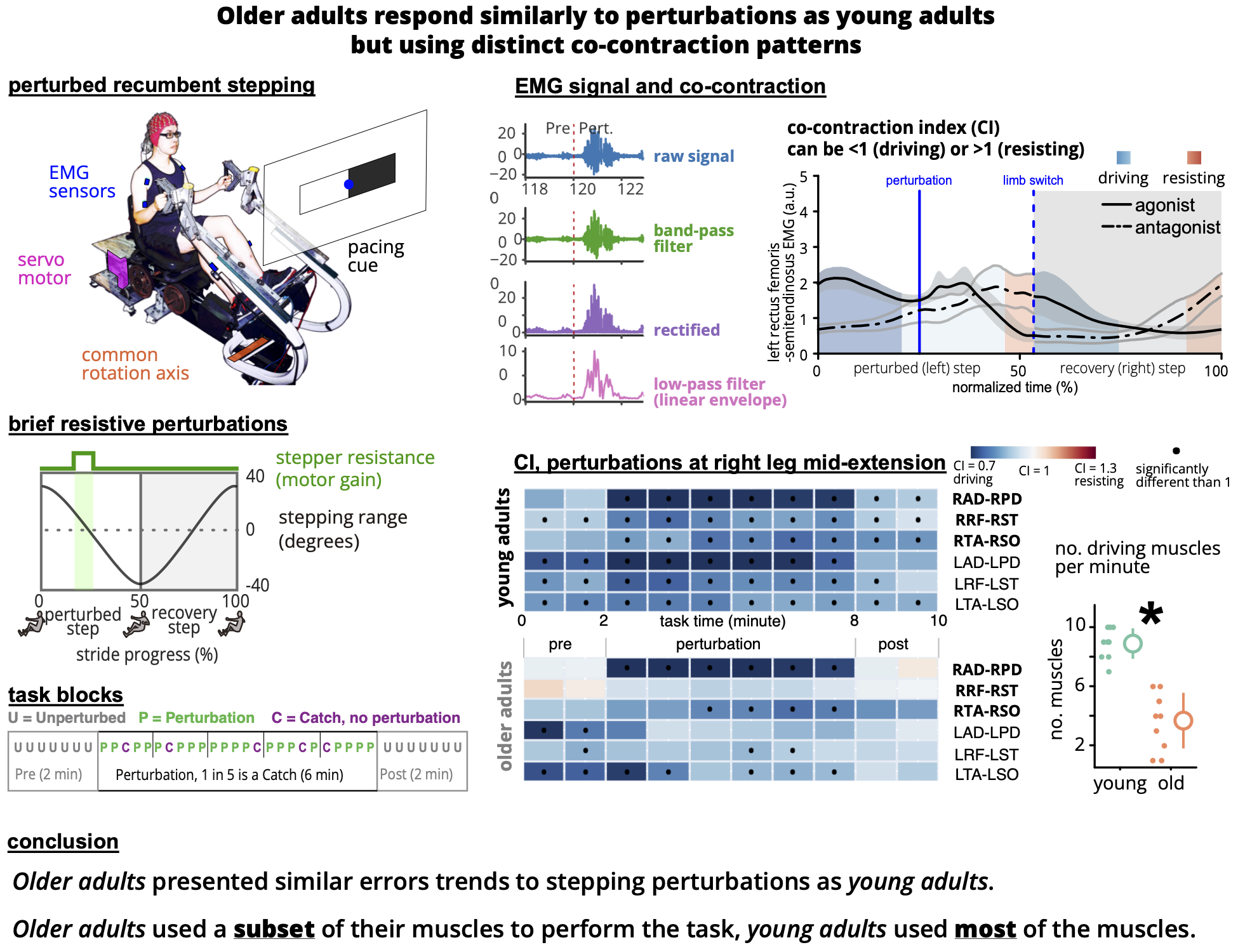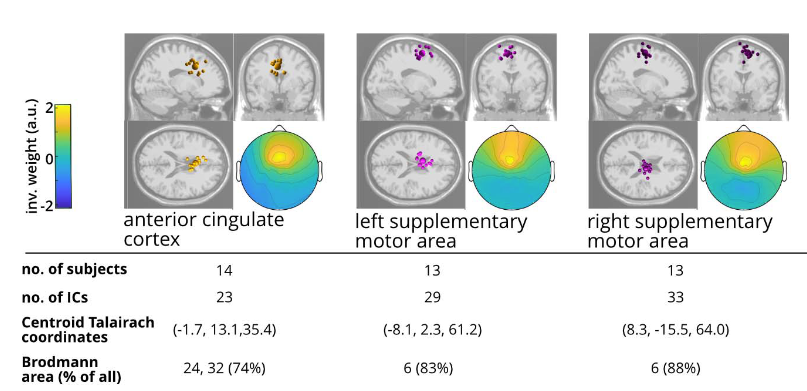
Older adults use fewer muscles to overcome perturbations during a seated locomotor task
Older adults often demonstrate greater co-contraction and motor errors than young adults in response to motor perturbations. We demonstrated that older adults reduced their motor errors more than young adults with brief perturbations during recumbent stepping while maintaining greater muscle co-contraction. In doing so, older adults largely used one muscle pair to drive the stepper, tibialis anterior and soleus, while young adults used all muscles. These two muscles are crucial for maintaining upright balance.
